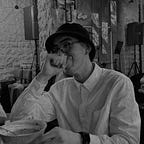Indefinability of Liberalism
If you do not live under a rock, that means you’ve probably heard about liberalism, at least once in a life. As a concept, It has been highly contested. Lots of articles, essays even books written on the topic. Some vigorously rose in defence of liberalism, while others chastising mercilessly. Even though It has been the subject of debates for centuries, there is staggeringly less known about its definition. On top of all, misconceptions, unfounded critiques, lies have been put forth to cloud the original understanding of liberalism.
On the way to discern the indefinability of liberalism Ryan’s hypothesises are worth to mention.
“Anyone trying to give a brief account of liberalism is immediately faced with an embarrassing question: are we dealing with liberalism or liberalisms? It is easy to list famous liberals; it is harder to say what they have in common. John Locke, Adam Smith, Montesquieu, Thomas Jefferson, John Stuart Mill, Lord Acton, T. H. Green, John Dewey and contemporaries such as Isaiah Berlin and John Rawls are certainly liberals — but they do not agree about the boundaries of toleration, the legitimacy of the welfare state, and the virtues of democracy, to take three rather central political issues”
Initial term of Liberalism was coined from the word of Liberty but their principal trajectory diverged from each other. Doyle depicts the idea of liberalism as follows, ‘liberalism resembles a family portrait of principles and institutions, recognizable by certain characteristics — for example, individual freedom, political participation, private property, and equality of opportunity’
This statement itself suffices to conceptualize liberalism briefly but liberalism is much more than that. It is deeply rooted in almost every single part of society and proceeds to expand its theoretical and empirical variants. Regenerative quality of liberalism is magnificently unmatchable. Capitalism, democracy, secularism, gender equality, racial equality, internationalism, feminism and so on share the basic ethics of liberalism to a certain extent. Tremendous volatility in the tenets of liberalism makes room for everyone to classify oneself as liberal at some point.
However, today the focus of mainstream liberalism shifted its main focus towards policy. This is the plausible cause of why some people take a negative approach against it. Politicians, especially in the west, are the alleged culprits of stigma and their campaigns contain exaggerated amount of explicit indoctrination in which liberal values are harshly criticized. to exemplify this, let’s take a look at President Donald Trump latest tweet:
Too many Universities and School Systems are about Radical Left Indoctrination, not Education. Therefore, I am telling the Treasury Department to re-examine their Tax-Exempt Status…
Demonizing liberalism and liberal democrats with the broad generalizations such as Radical Left Indoctrination is not a new tactic of Trump but we get to see a slightly new attitude in this respect. He directly attacks on free speech by threatening to punish universities and this is dangerous for all. It begs question: Does this kind of mindset have the ring of the truth? Can liberalism be quantified as radical? Who is to blame for tailoring such a notoriously contested costume?
These questions lead us to the core of Liberalism.
Historically two types of liberalism are chiefly mentioned and both of them were criticized for not having final consensus.
First type is classical liberalism and it is highly crucial comprehensive philosophical and maybe political ideology which advocates civil liberties by bolstering individualistic freedoms with the limited intervention of government. Main objectives of classical liberalism are personal choice, individualism and spontaneous self-governing style is the dominant focus for this ideology. Wealth, commerce and international trade was glorified while war and conflicts classified as a malign influence. Considering blood-sheds and contemptuous disasters of 19 and 18th centuries, it is no wonder why they accentuated significant pressure on such topics.
Modern liberalism is, on the other hand, characterized by the great inclination to the favour of governmental intervention in the society. This has often issued in a pronounced tendency to regulate the marketplace, and to have the state supply essential goods and services to everyone. Modern liberalism is, therefore, for all intents and purposes, a profound revision of liberalism, especially of the economic policies traditionally associated with it. Proponents of modern liberalism vigorously advocate the idea of group-specific rights which mainly regulated and promoted by the government. The countries which prioritize modern liberalism as the main approach in the politic realm, faces dangerous backlash by conservative and republican policymakers and authorities. Outside protection of government gets in the way of people those are extremely complacent and positive about current circumstances.
To elucidate this, let’s take black lives matter movement as an example. People who support this movement boldly and rightfully demand government’s adequate action to end the institutional and systematic racism which both have visibly and invisibly plagued millions of people’s lives. People who essentially affected by the unjust and biased treatment are of course angry. Regardless of fact that boundaries of toleration and liberalism are not yet clearly identified but from a general standpoint, racism, hate speech, homophobia, misogyny, sexism etc. cannot be tolerated in modern liberal environments, however, classical liberalism suggests absolute otherwise. Accordingly, non-liberal elements must be tolerated, because they think non-tolerance is unacceptable to the general nature of liberalism. This is the exact place where dichotomy starts and spews the paradoxical effect. But we all are aware of the fact classical liberalism cannot be exercised in today’s world because of its utterly utopic attributes. It is simply impossible to address all of the questions arising from the dilemma, but educating oneself on the liberalism in a time in which the strong backlash against liberalism skyrockets in each passing day is necessary. I want to conclude the theory behind indefinability with the wise saying:
to define is to limit. by Oscar.W
I was inspired by the works and essays of several professors in the course of writing this article.
Dag Einar Thorsen and Amund Lie, David Rousseau, Thomas Walker are some of them.
